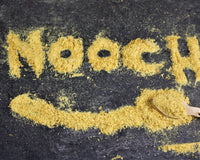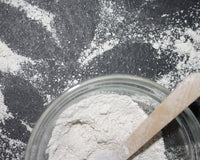Flavours make the food pleasurable. Herbs and spices offer fantastic health benefits and carry aromas that help you elevate your dishes to another level. They are essential ingredients in international cuisines and bring genuinely authentic taste. By adding them to your food, you can taste the world's flavours without moving from your kitchen.
If you cook at home, it is worth having a collection of herbs and spices always at hand. They have a long shelf life, and you don’t need to worry they will go off. Home chefs who know basic spices and herbs can combine them to create some incredible new seasonings and flavours.
These are some of this year’s popular combinations with ingredients and uses that can make your cuisine spectacular.
Sumac
Sumac is the most popular seasoning in Iran, after salt and pepper. It's a powder ground from the dried fruit of the Sumac shrub. It has a lemony, sweet and sour flavour, and you can use it for everything from salads to stews.
Za'atar
Za'atar is a Mediterranean seasoning made with sumac, organic dried thyme, toasted sesame seeds, organic oregano, cumin, black pepper, marjoram, salt and a little lemon zest.
It has a fresh, earthy and zesty flavour. It's great to sprinkle on bread, chips, plant-based cheese, nut cheese, salads, veggies and seafood.
Dukkah
This Egyptian seasoning is a mix of herbs, spices, salt and nuts like hazelnuts, sesame seeds and pistachios. Sprinkle on soups, salads and toasts. You can also add it to baked goodies like bread, scones, and savoury muffins. Mix it with olive oil and use it as a delicious dip for bread and rice (that's how they use it in Egypt.)
Powdered seaweed
Powdered seaweed is a trendy seasoning that can replace salt in many dishes. It is excellent for vegetable dishes such as stews, pies, and soups. It will give them a deep umami flavour without tasting like pure salt. It's easy to make. Using a blender, mix the dry seaweed with a little salt into fine dust. You can store it in a glass jar for months.
Baharat
Baharat is a Middle Eastern seasoning. It is used in Lebanon, Syria, Israel, Palestine, and Turkey, and it's a bit different in every country. It is a mix of warming spices that will add a fantastic aroma and some sweetness to your dishes. Use it for warm dishes like soups, pies and stews. The most commonly used ingredients for Baharat include black pepper and white pepper, coriander, allspice, nutmeg, paprika, cumin, cardamom, cinnamon and cloves.
Chinese 5 Spice
As the name suggests, this Chinese seasoning is a mix of 5 flavours: salty, sweet, sour, spicy and bitter. The ingredients include spices such as star anise, fennel, black pepper, cinnamon, cloves, ginger, nutmeg, and galangal. This seasoning is best to use for warm dishes - roasted, cooked or baked.
Garam Masala
Garam Masala is a very popular mix of spices from India used for curries, lentils, chickpeas, cooked and roasted vegetable dishes and rice. It's a mix of aromatic spices, including coriander, cumin, cardamom, cinnamon, cloves, nutmeg, bay leaf, star anise, black pepper, fennel seed and mace.
Harissa
Harissa is a spicy seasoning originally from North Africa. Commonly used in Moroccan, Algerian and Tunisian cuisine, it is made with red chilli pepper, paprika, coriander seeds, cumin seeds, garlic, caraway seeds, salt, olive oil and lemon juice. Used for marinates, sauces, stews, soups, hummus and couscous.
Nut parmesan
This one is a healthy savoury seasoning made with nuts that you can use to replace cheese in your diet. It combines hazelnuts, almond flour, nutritional yeast and salt. It's a perfect vegan parmesan option for pasta, lasagne, toast, veggies and salads. If you want an extra spicy flavour, just add some chilli. You can store it in an airtight container in a fridge for a couple of weeks.






